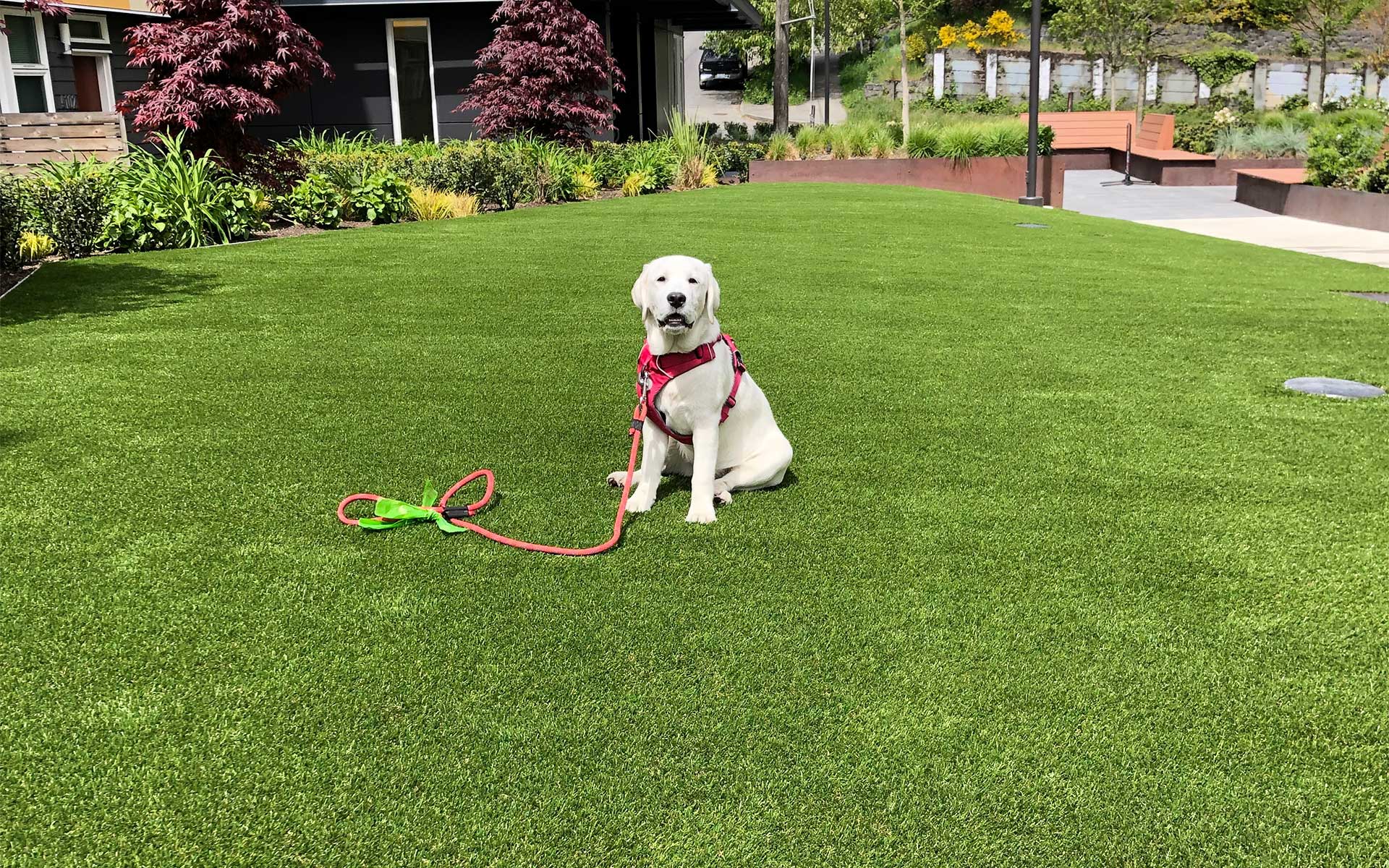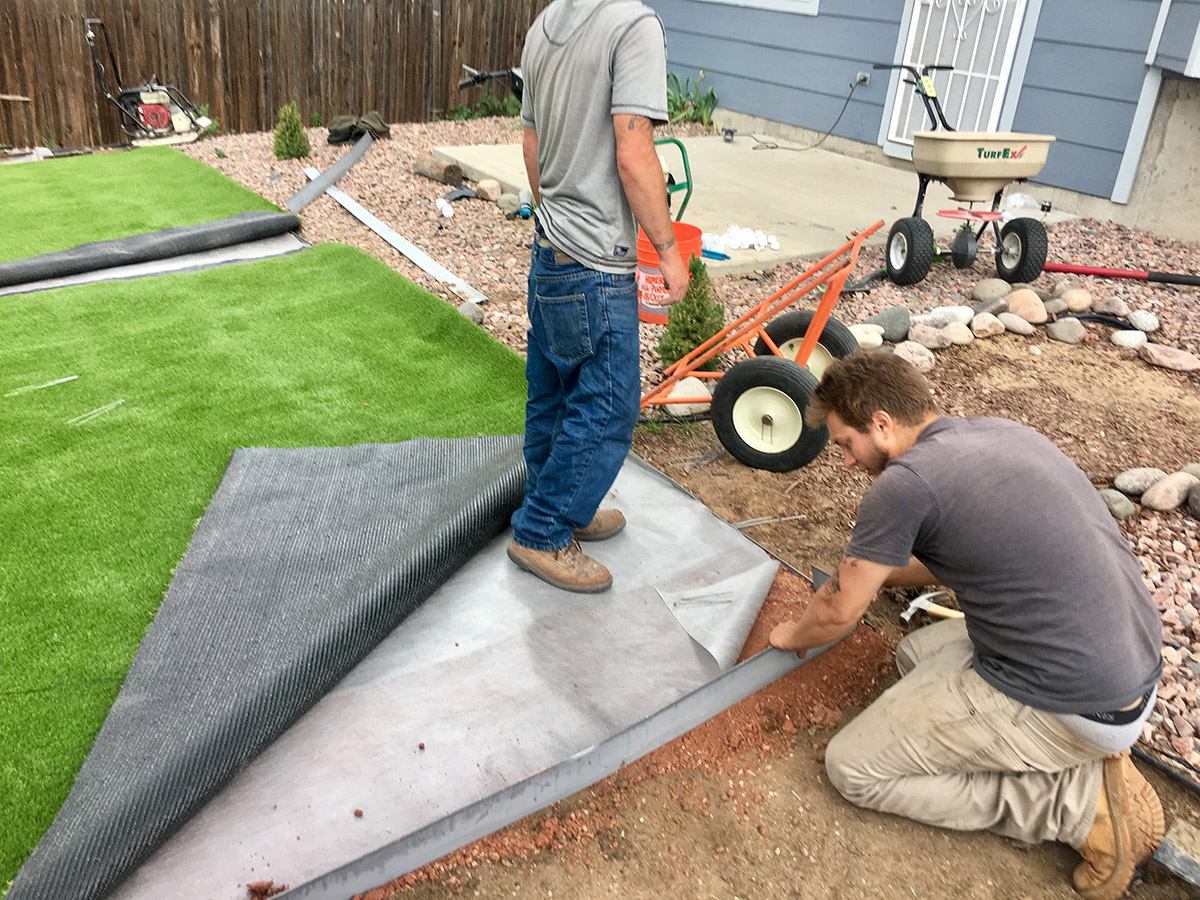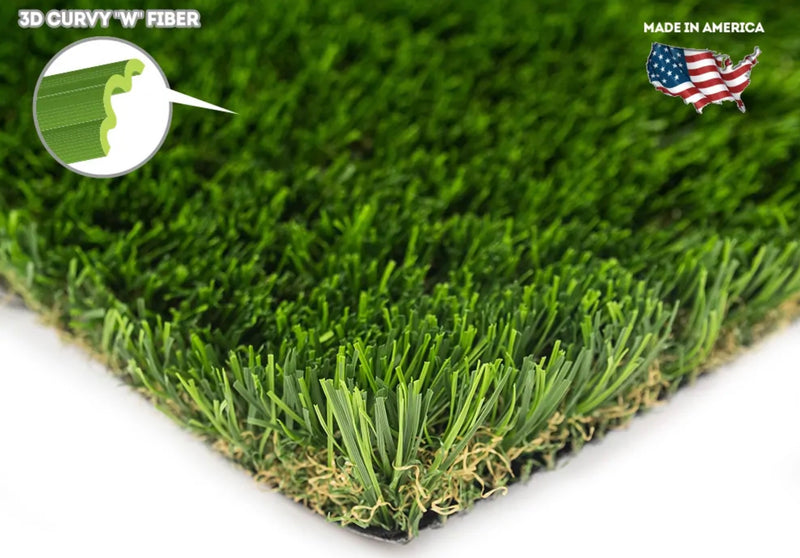Look Into the Environmental Advantages of Opting for Artificial Turf Solutions
The adoption of artificial turf solutions offers an engaging opportunity to deal with pushing environmental difficulties. By significantly decreasing water usage and minimizing the application of damaging chemicals, these options not just promote sustainable landscape design however likewise secure neighborhood ecological communities. The reduced carbon footprint associated with decreased upkeep activities adds to a more lasting strategy to land administration. However, the ramifications of these advantages prolong past plain conservation initiatives, questioning regarding their long-term impact on environment conservation and general environmental balance. Discovering these measurements discloses an intricate interaction worth taking into consideration.
Water Preservation Perks
Among the most significant advantages of man-made grass is its capacity to conserve water. Traditional grass lawns need substantial irrigation, especially in areas vulnerable to drought or water restrictions. In comparison, synthetic grass does not require watering, significantly minimizing the overall demand for water sources. This feature is especially advantageous in dry regions where water deficiency is a pressing concern.
By eliminating the need for routine watering, synthetic grass adds to lasting landscape practices and assists mitigate the ecological effect of extreme water usage. The conservation of water extends to the reduction of drainage, which can lead to soil disintegration and river air pollution.
In addition, the setup of synthetic grass enables communities and house owners to assign water sources more effectively, concentrating on vital usages such as alcohol consumption water and farming. The change towards synthetic grass not only promotes liable water usage yet likewise aligns with wider environmental goals focused on maintaining natural deposits.
As neighborhoods progressively prioritize sustainability, the water conservation benefits of synthetic grass offer an engaging situation for its fostering in business and domestic landscape design projects.
Decreased Chemical Usage
The transition to synthetic grass considerably reduces the reliance on chemical treatments generally made use of in natural turf upkeep. Traditional grass administration normally entails the application of pesticides, plant foods, and herbicides to advertise development and control parasites. These chemicals can posture dangers to human health, neighborhood wild animals, and the environment, adding to soil and water contamination.
In contrast, synthetic grass removes the need for these unsafe materials. Once mounted, it needs marginal maintenance, mainly consisting of normal cleansing and irregular infill replenishment. This decrease in chemical use not just profits the prompt environment but likewise adds to wider environmental security. By minimizing the release of artificial compounds right into the environment, man-made grass promotes healthier dirt and water systems.
Additionally, the lack of chemical runoff connected with synthetic grass installations assists safeguard regional rivers from contamination, sustaining marine life and keeping biodiversity. Turf installation phoenix az. As neighborhoods significantly focus on lasting methods, deciding for fabricated turf provides a practical solution that aligns with ecological conservation goals. Through this change, homeowner can appreciate rich eco-friendly areas without compromising ecological health, paving the method for a more sustainable future
Lower Carbon Footprint

Moreover, the installation of synthetic grass can lead to significant water preservation. Natural lawns call for significant amounts of water for irrigation, which not only contributes to the carbon footprint connected with water removal and treatment yet additionally strains neighborhood water resources. In comparison, synthetic grass needs marginal upkeep, calling for no watering, thereby substantially minimizing water use and its linked power prices.
Furthermore, the durability of synthetic grass adds to its lower carbon influence. With a lifespan of approximately 15 years or more, the need for frequent substitutes is reduced, leading to less waste and lower power consumption in manufacturing and getting rid of standard grass alternatives. In general, fabricated lawn offers a lasting choice for eco conscious landscape design.
Environment Conservation
Environment conservation is a vital consideration in the dispute over landscaping options, especially when comparing synthetic grass to all-natural lawn. All-natural yard yards usually need extensive upkeep, including making use of fertilizers, pesticides, and herbicides, which can negatively influence regional environments. These chemicals can leach into the dirt and rivers, harming native flora and animals and interfering with neighborhood habitats.
Man-made turf removes the need for damaging chemicals, therefore securing nearby wildlife and maintaining the integrity of surrounding environments. The setup of fabricated turf can lead to the conversion of former turf areas right into even more biodiverse landscapes, such as pollinator yards or indigenous plant locations, which can support local wild animals.
Eventually, the change to synthetic grass not only preserves this post water and decreases upkeep efforts but additionally promotes a much more unified partnership between human activities and the native environment, advertising environment preservation while doing so.
Long-Term Sustainability
Long-lasting sustainability is an important aspect in examining the benefits of fabricated grass over traditional grass yards. One of the most substantial advantages of artificial grass is its durability; it can last approximately 15-20 years with very little upkeep, whereas natural lawn needs regular reseeding and replacement. This long life decreases the need for constant sources, such as water, fertilizers, and chemicals, which are necessary for keeping a healthy turf yard.
Additionally, synthetic grass adds to a decrease in carbon exhausts connected with yard treatment tools. Standard grass commonly need gas-powered mowers, trimmers, and blowers, every one of which contribute to air contamination. Arizona artificial turf. In see this comparison, man-made grass removes the demand for such equipment, promoting a cleaner atmosphere
Additionally, the manufacturing of synthetic grass progressively makes use of recycled materials, enhancing its sustainability account. As producers adopt eco-friendly methods, the environmental impact of synthetic grass proceeds to decrease.

Final Thought
The fostering of synthetic grass remedies offers significant ecological benefits, including considerable water preservation, reduced reliance on dangerous chemicals, and a reduced carbon footprint. Additionally, artificial grass aids in maintaining all-natural environments by lessening land disruption and advertising lasting sustainability via using sturdy products. Collectively, these aspects highlight the potential of man-made lawn to add favorably to ecological health and provide a viable choice to traditional landscaping techniques in an increasingly resource-conscious globe.
In contrast, synthetic grass does not require watering, substantially reducing the total need for read this article water resources. By decreasing the release of synthetic compounds right into the community, fabricated lawn advertises much healthier soil and water systems.
Furthermore, the installation of synthetic lawn can result in significant water conservation. In comparison, fabricated grass needs very little upkeep, requiring no watering, thereby dramatically decreasing water use and its linked power expenses.
